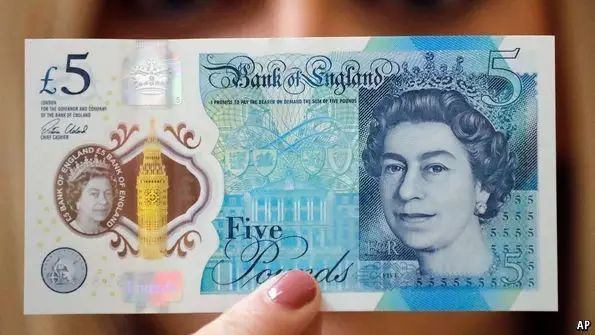
Guess what happened to this piece of money.
(first of all, we must solemnly remind that it is illegal to deface banknotes artificially. Please do not imitate the experimental operation! )
in the UK, the new £5 note is no longer paper money, it is plastic. Plastic banknotes look quite strong and cannot be torn. However, no matter how strong banknotes are, they cannot resist the power of chemistry. Recently, the oil pipeline channel Periodic Videos has tossed about these plastic banknotes.
first of all, we are familiar with the routine: add liquid nitrogen, and then hit it.
low temperature can make a flexible polymer hard and brittle, so naturally it successfully cracked _ (: flexible "∠) _
but onlookers who have seen the world say that we have seen too much liquid nitrogen, so what if you spend money.
so next, they put on a little bit of news-- fuming nitric acid. This is a little scary.
(it's dangerous, don't learn! )
this is a comparison between the old and new banknotes, and the old one on the left is the banknote.
what's the result after the big news? The surface of the plastic banknote has all been corroded away.
after rinsing, you get a transparent piece of plastic paper.
they also went to test the composition, and the results showed that it was polypropylene, all right.
what about paper money? After it was pulled out and dried, it became heavier than before:
as for the reason, the cellulose was nitrified.
finally, nitrification banknotes were counted.
the feeling when I see here is: can I call the police now?
Are you agitated to acquire boat neck wedding dress and be unique in a crowd? Our collections will meet all your needs.
PS:Periodic Videos is an interesting channel on the tubing, backed by chemistry professor Martyn Poliakoff (the old man with dishevelled hair in the screenshot above) and his team. They like to make trouble very much, and they can also explain some knowledge of chemistry. If they are interested, they can pay attention to it. Of course, when professionals install x, we just watch it silently, and we'd better not learn. )